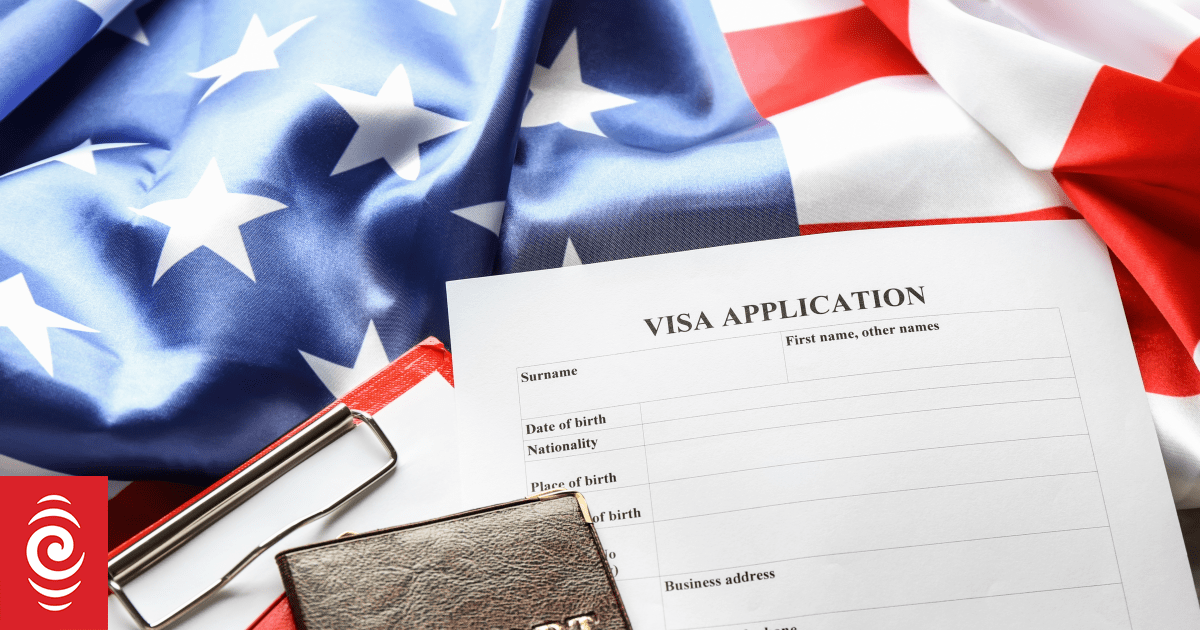Photo: 123RF
A massive US$100,000 (NZ$170,000) fee slapped on a popular US work visa has sent shockwaves through global job seekers, but experts say Kiwis are unlikely to give up on the American dream.
US President Donald Trump signed an executive order on Friday imposing the new application fee for the H-1B visa, which allows highly skilled workers to live and work in the US for three years, renewable once.
Until now, the cost of applying has been about US$3,500.
The H-1B is capped at 65,000 places a year, with an additional 20,000 reserved for those with advanced degrees. Many tech companies depend on it to fill critical skills gaps.
For Kiwis, the announcement initially sparked panic. Kevin Park, co-founder of Concord Visa, which guides New Zealanders through the US process, told RNZ’s Checkpoint that the weekend following the announcement was “absolute chaos”.
“We’ve got clients all around the world, including Kiwis that were having to make some impossible decisions,” he said.
At first, Park said, no one knew if the fee would apply to people already in the US or just new applicants.
Clarification since then has narrowed the scope. The fee will hit only new applicants preparing for next year’s lottery.
That still leaves hundreds of New Zealanders exposed. Around 150 to 200 Kiwis secure an H-1B visa each year, and Park estimates up to a thousand are currently in the US on the scheme.
But Park believes Kiwis will not be deterred. Instead, he expects more to channel their creativity into alternative routes, from the O-1 “superstar” visa to entrepreneur visas or intra-company transfers.
“Kiwis don’t have wings, but we’ve always dared to go and fight it out with the best,” he said.
Even before Trump’s announcement, there was already a “rocketing number” of applicants moving towards these alternatives, he said.
New Zealand firms like Rocket Lab, Xero and Halter are using increasingly creative pathways to the US market, Park said.
“They are relying on other different visas and making sure they have a fighting chance and not depending on [H-1B visa] lotteries to have a seat at the ring.
“It’s not very good place to be trying to compete on the world stage when you only have a 20 [to] 30 percent chance of making it in the first place.”
While Trump has argued the move will ensure the US admits only “great workers,” critics say it disproportionately targets Indian IT workers, who make up about 70 percent of H-1B holders.
US Commerce Secretary Howard Lutnick went further, unveiling a new “gold card” scheme that would fast-track visas for foreigners who pay US$1 million – or US$2 million for companies sponsoring them.
Park, however, dismissed suggestions that H-1B holders are underpaid. “These are six-figure jobs. People have degrees and must meet government-set salary levels,” he said.
With fees skyrocketing and policies shifting, Park predicts Kiwis will continue to do what they’ve always done – improvise.
“This is far from what anyone was expecting. But New Zealanders are savvy,” he said.
“They’ll keep finding ways to get amongst it.”
-RNZ/CNN

